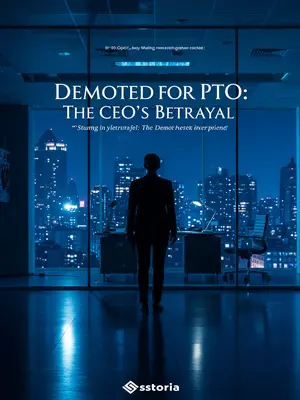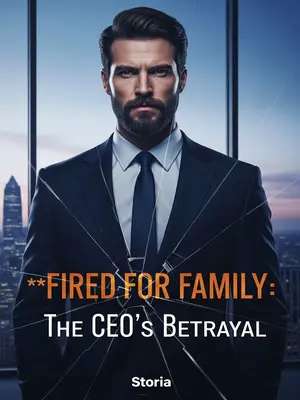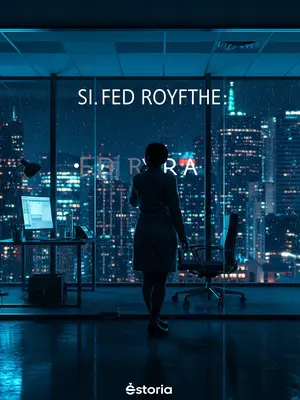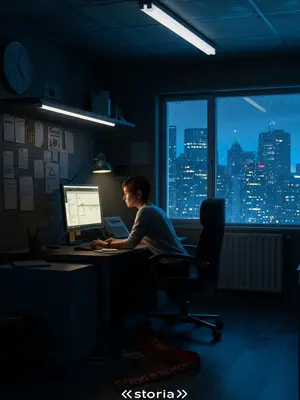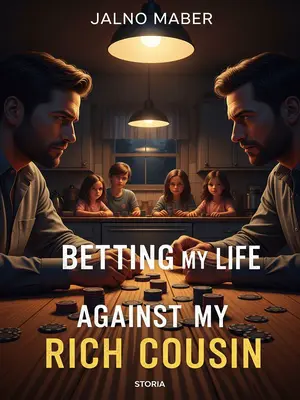Chapter 1: The Canary and the Papers
Derek Holbrook’s canary is throwing a tantrum again.
The apartment smelled like burnt coffee and last night’s takeout, the kind of place where nothing ever really settled. From the next room, I could hear the shrill, indignant trilling—high-pitched, stubborn, and as persistent as a car alarm at 3 a.m. Derek barely glanced up, just rolled his eyes the way he did whenever anything or anyone in his world made too much noise.
He handed me the divorce papers. “Just sign it, okay? It’s all for show. Gotta keep the kid from freaking out.”
His tone was dismissive, almost bored, like he was ordering an extra side of fries. The papers were crisp and official, but his indifference cut deeper than the courthouse seal stamped on the bottom corner. My heart pounded, but I kept my hand steady as I took the pen. I remembered the first time I ever signed my name as 'Emily Holbrook'—on our marriage license, my hand shaking with hope and excitement. Now, the name felt foreign, a borrowed identity I was finally returning.
I gripped the hem of my skirt tightly and nodded.
The polyester pinched between my fingers, grounding me in the moment—one last anchor before I let go. I could smell the faint lemony scent of the office cleaner, and outside, the sun baked the sidewalk so hot it shimmered through the glass. A framed motivational poster—'Teamwork Makes the Dream Work'—hung crooked behind Derek’s desk, and the AC rattled in the ceiling.
Without a word, I signed my name.
The letters looked foreign in my own handwriting. I thought about the way my name used to look on wedding invitations, on the mailbox, on little sticky notes stuck to the fridge with smiley faces. All that felt a lifetime ago.
As I was leaving, I overheard his friends teasing him. “Your wife is really too obedient, huh? If you told her to go get the papers, she probably wouldn’t say a word either, right?”
Their laughter exploded from his office, loud and sloppy, like a Friday night at a college bar—careless, a little mean. It was the kind of locker room ribbing that happened behind closed doors, the sort of teasing that was supposed to be harmless, but always left bruises.
Derek lit a cigarette and smiled. “Wanna bet?”
His lighter snapped, a metallic click echoing. The smoke drifted toward the window. His voice was smug, like he’d already won the argument and maybe the whole world.
They bet that a month later, at the county clerk’s office, I’d cry my eyes out but still do exactly as I was told.
It sounded like something from a reality show—bets on someone else's heartbreak. My nails dug into my palm, and for a second my vision blurred as I realized I was the punchline. My throat tightened. I could hear the shuffle of bills, the easy confidence in their voices. To them, my pain was just a punchline.
Swap a wedding band for a court-stamped breakup—like turning in a winning lottery ticket and getting a bill instead.
There was something so cold about that—like trading in a used car, or handing over an expired coupon at the checkout. The word "decree" felt heavy, final. I stared at the screen of my phone, my reflection caught in the glass like a ghost.
I held my phone, silent.
The hum of city traffic echoed outside the window. My hands felt cold, even though it was ninety degrees out. I scrolled through unread messages, thumb trembling over the glass.
I replied to the message I’d just received:
[So, what if you just married me instead? Would that be so bad?]
My finger hovered over the keyboard. There was a kind of wildness in the question—like someone was offering to run away with me, to start fresh in a new city where nobody knew my story. I hesitated, thinking about what I’d lose—my old life, the safety of routine, even the comfort of being invisible. But what did I really have left to risk?
“Okay.”
The word looked small, almost lost, floating in the chat bubble. I said it out loud, just to see if it sounded real.
1.
[?]
The reply came almost instantly.
I could almost see the three dots pulsing, an anxious heartbeat on the screen. The urgency made me dizzy. It was strange, the comfort I felt in that question mark—so much possibility packed into a single stroke.
I turned off my phone.
For the first time in years, I wondered what it would feel like to be the one who walks away.
The screen went black, shutting out the world and its noise. For a moment, the only thing that existed was the pulse in my wrist and the far-off blare of a siren two blocks away.
Inside, the laughter and chatter continued.
Their voices bounced off the glass walls and tile floors. Somebody popped open a can of Diet Coke; someone else snorted at a joke I didn't quite catch. It all felt so normal. So oblivious.
“All right, if your wife is really that obedient, drinks are on me next month.”
“Three months,” Derek said.
“Deal, deal, deal.”
The clinking of bottles followed, the air thick with bravado and cheap cologne.
A burst of laughter and noise.
It rolled over me like a wave. I stood on the edge of the room, invisible. My palms itched, wanting to press against my ears, to block it all out, but I stayed still.
I hurried out.
I grabbed my bag, kept my head down, and made a beeline for the elevator. The reception desk was empty, save for a half-eaten muffin and a cup of lukewarm coffee. As the doors slid closed, I caught a glimpse of my own face in the mirrored glass—mascara smudged, lips pressed tight.
Only after leaving the office building, when the harsh sunlight stung my eyes, did the tears finally fall.
The sidewalk was blinding, the kind of light that seemed to bleach the color out of everything. I ducked behind a planter, blinking hard, but the tears came anyway—fast and hot, stinging more than the sun ever could. My shoulders shook. I kept my back to the street, trying to be invisible in plain sight.



